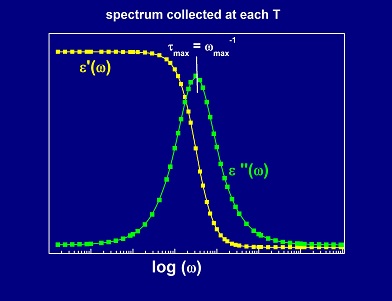Laboratory
The main experimental technique that supports the research work of the DCR Group is Dielectric Relaxation Spectroscopy (DRS). The dielectric relaxation spectroscopy is a suitable tool to monitor molecular mobility for materials containing permanent dipoles, through the measurement of the complex dielectric constant ε*, when the material is under the influence of an alternating electrical field. When the dipoles are no longer able to follow the oscilating electric field, the real part of the complex permittivitty decreases (sigmoide curve) and the imaginary part passes through a maximum at fmax (fmax=1/2πτmax). The maximum location allows inferring about molecular dynamics.

Differential Scanning Calorimetry (DSC) measures the change of the difference in the heat flow rate to the tested sample and to a reference while they are subjected to a controlled temperature program (Günther Höhne, Wolfgang F. Hemminger, H.-J. Flammersheim, Differential Scanning Calorimetry, Springer-Verlag, 2003). It allows to monitor thermal transformations (glass transition, crystallization/melting, decomposition, water release etc) and to determine the respective temperature range, enthalpy and heat capacity.
Facilities
The DCR Group Laboratory is located at the Chemistry Department of the Faculty of Science and Technology, Universidade Nova de Lisboa, Associated Laboratory REQUIMTE.
